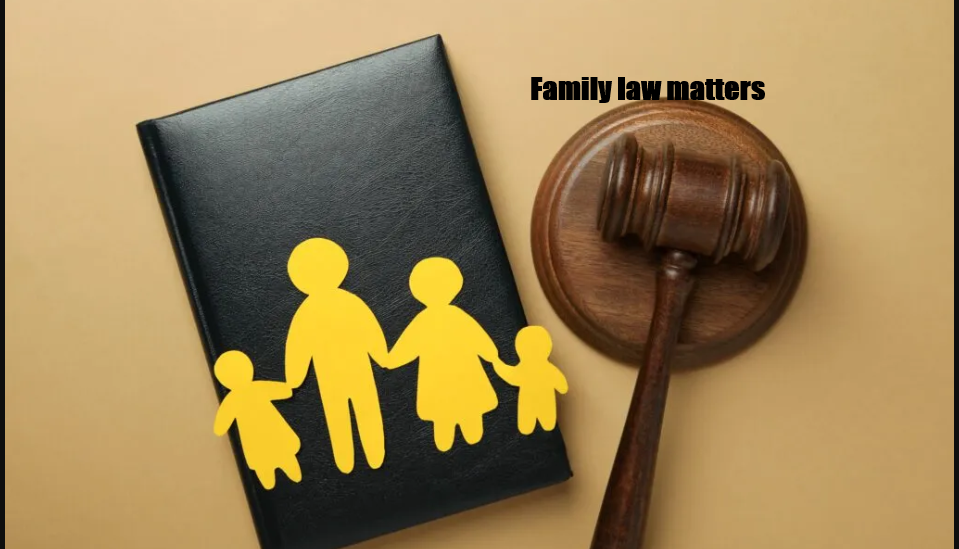Family law matters can be emotionally challenging and legally complex, affecting some of the most personal aspects of your life. Whether you’re facing divorce, custody disputes, or other family-related legal issues, understanding your rights and options is crucial for making informed decisions that protect your interests and those of your loved ones.
What Is Family Law and Why Does It Matter?
Family law encompasses a broad range of legal matters that affect families and domestic relationships. This specialized area of law covers everything from marriage and divorce to child custody, adoption, and domestic violence protection. The decisions made in family law cases often have long-lasting impacts on your financial security, parental rights, and overall well-being.
Key Areas of Family Law Practice
Divorce and Legal Separation Divorce proceedings involve the legal dissolution of marriage, including the division of marital assets, determination of spousal support, and establishment of custody arrangements when children are involved. Legal separation offers an alternative for couples who wish to live apart while remaining legally married.
Child Custody and Support Custody arrangements determine where children will live and how major decisions about their upbringing will be made. Child support calculations ensure that both parents contribute financially to their children’s needs, including housing, education, healthcare, and daily expenses.
Property Division The equitable distribution of marital assets and debts requires careful consideration of factors such as the length of the marriage, each spouse’s financial contributions, and future earning capacity. This process often involves complex valuations of real estate, businesses, retirement accounts, and other significant assets.
When Should You Seek Professional Legal Help?
Navigating family law matters without proper legal guidance can result in unfavorable outcomes that affect you for years to come. Professional legal representation becomes essential when dealing with contested divorces, complex asset divisions, or disputes involving children’s welfare.
Signs You Need Legal Assistance
If you’re experiencing any of the following situations, consulting with qualified family law solicitors near me can help protect your rights and interests:
- Your spouse has hired an attorney
- Significant assets or debts are involved
- Child custody is being disputed
- There are concerns about domestic violence
- Business ownership or professional practices are at stake
- International elements complicate your case
Preparing for Your Family Law Case
Gather Essential Documentation Compile financial records, tax returns, bank statements, property deeds, and any relevant correspondence. This documentation will be crucial for asset valuation and support calculations.
Understand Your Goals Clearly define what outcomes are most important to you, whether that’s maintaining custody of your children, protecting certain assets, or ensuring fair support arrangements.
Consider Alternative Dispute Resolution Mediation and collaborative divorce processes can often resolve family law matters more efficiently and amicably than traditional litigation, reducing both emotional stress and legal costs.
Frequently Asked Questions
How long does a typical divorce take? The duration varies significantly based on case complexity and whether issues are contested. Uncontested divorces may be finalized in a few months, while complex contested cases can take over a year.
Can I modify child support or custody arrangements later? Yes, modifications are possible when there’s a substantial change in circumstances, such as job loss, relocation, or changes in the child’s needs. Court approval is required for any modifications.
What factors do courts consider in custody decisions? Courts prioritize the child’s best interests, considering factors like each parent’s ability to provide care, the child’s relationship with each parent, stability of living arrangements, and the child’s own preferences if age-appropriate.
How are assets divided in divorce? Asset division depends on whether you live in a community property or equitable distribution state. Courts consider factors like the length of marriage, each spouse’s contributions, and future financial needs.
Is mediation required in family law cases? Many jurisdictions require mediation attempts before proceeding to trial, particularly in cases involving children. Mediation can be more cost-effective and less adversarial than litigation.
Conclusion
Family law matters require careful consideration of both legal and personal factors that will impact your future. Understanding your rights, gathering proper documentation, and working with experienced legal professionals can help ensure the best possible outcomes for you and your family. Whether you’re facing divorce, custody issues, or other family law challenges, taking proactive steps to protect your interests is essential for moving forward with confidence and security.
Articles published under the Editorial Desk byline may include material from various sources and are reviewed internally to ensure clarity, factual consistency, and compliance with the site’s editorial standards. Content is published for general informational purposes only and follows applicable content and publishing guidelines




